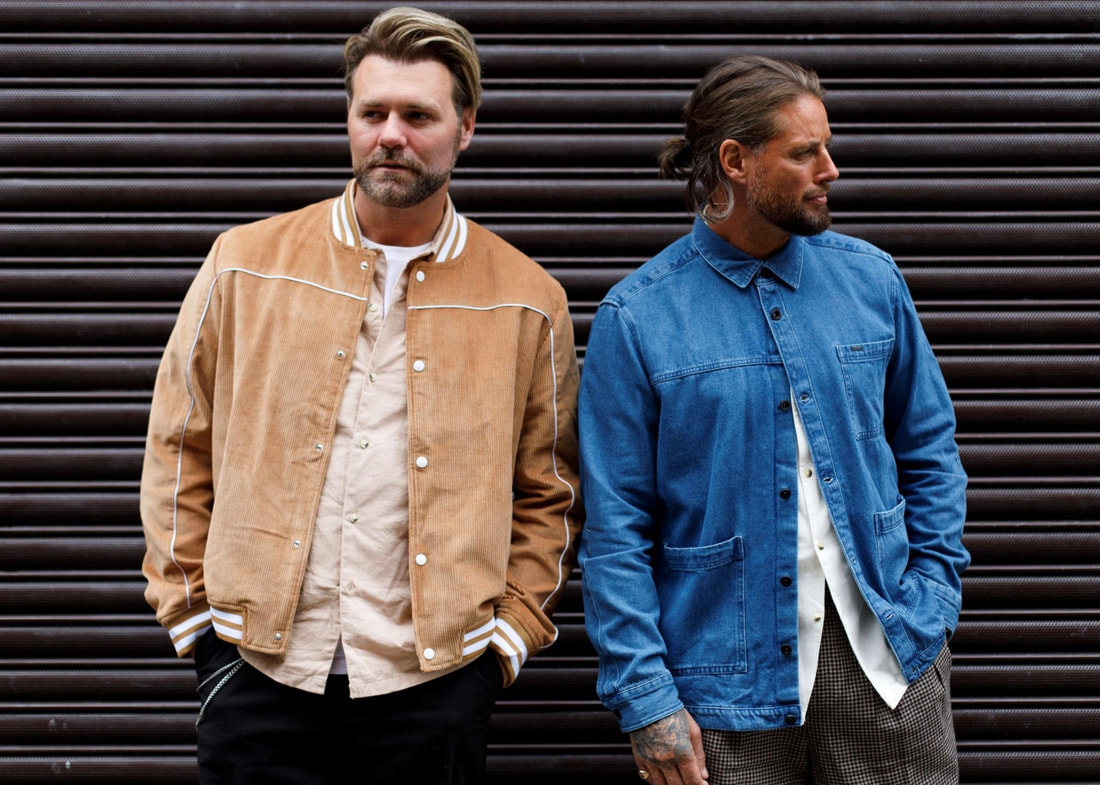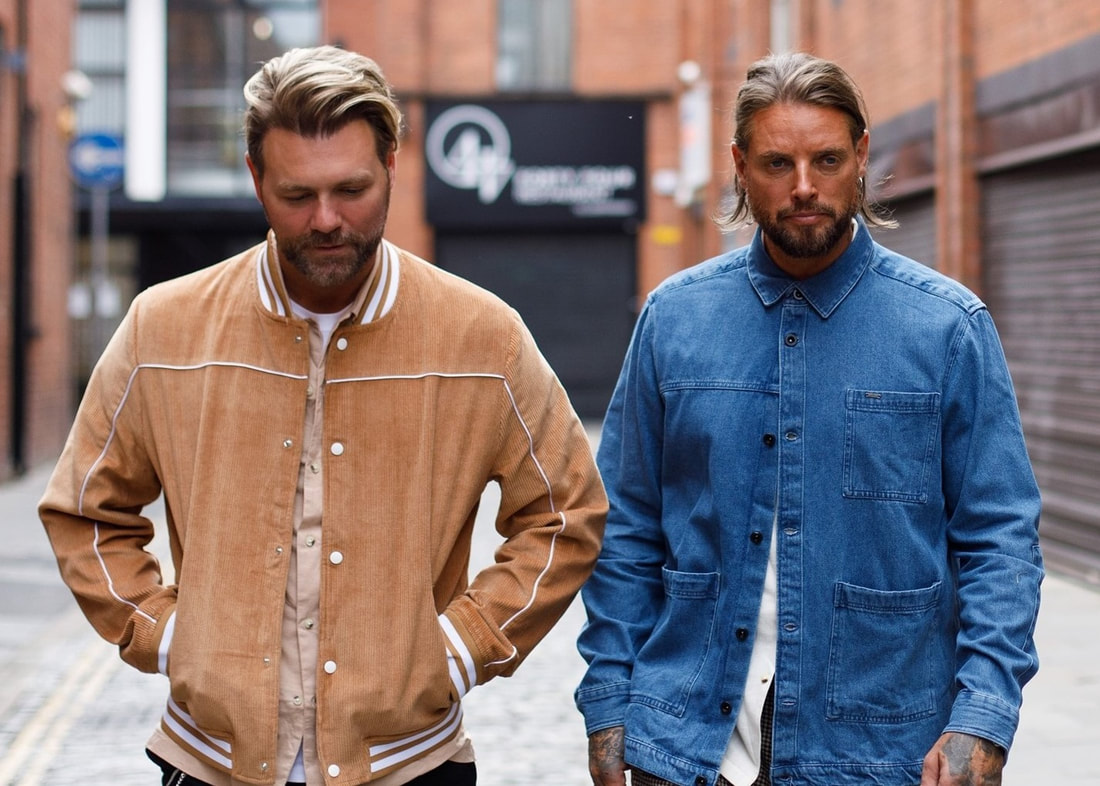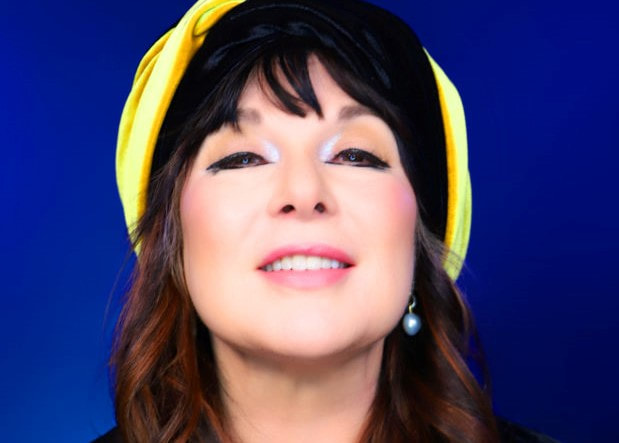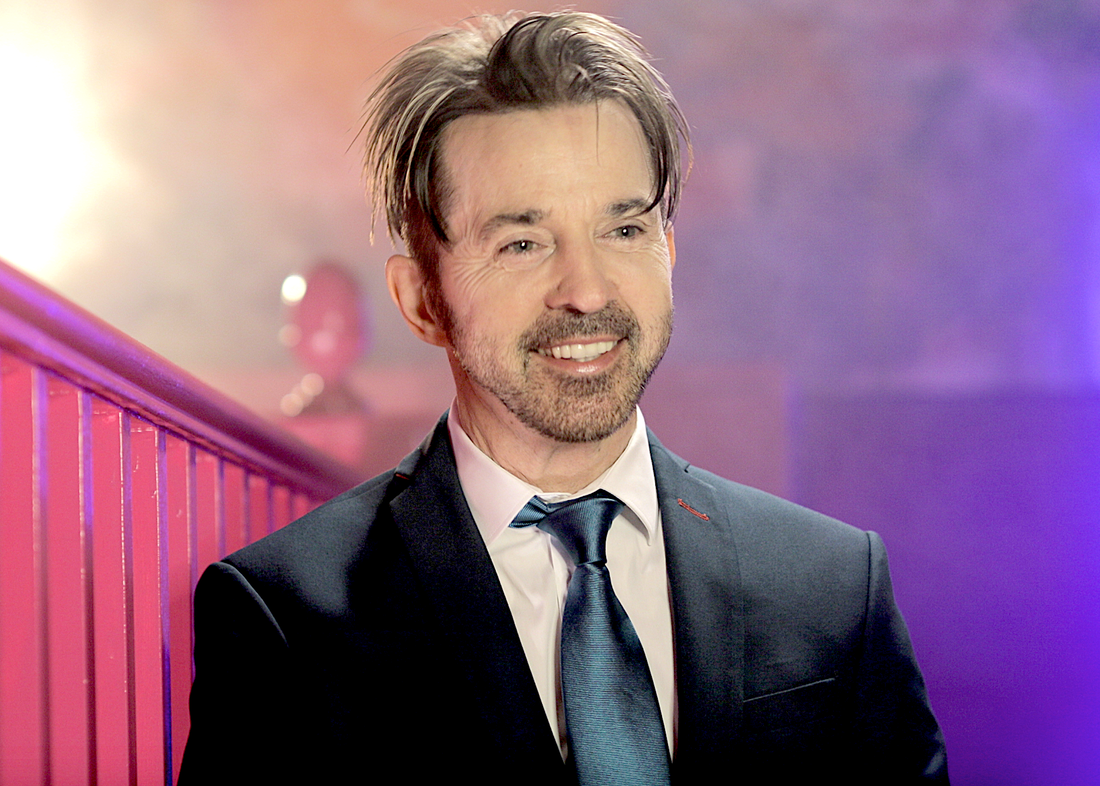|
Coming from two of the biggest boybands in history in Boyzone and Westilfe, Keith Duffy and Brian McFadden have seen and done it all. Selling a staggering 55 million albums between them, topping the charts all over the globe, and selling out huge arena tours, there’s little that the pair have left to achieve. Now “ageing boyband members”, the pair have come together as Boyzlife, with their first album of all original material ‘Old School’ an exhilarating homage to the music the duo grew up listening to, expertly re-crafted through the lens of today’s pop sensibilities. We sat down with the Irish pop heroes for a chat about the album and their glory days. A different beat; Eamon O’Neill
Hi guys, welcome back; how does it feel to be back in the saddle again with ‘Old School’?
Brian McFadden: It’s always an exciting week leading up to the album because we spent so much time writing demos and then getting the songs together, then getting into the studio, recording, doing photo shoots for the album, doing video shoots, releasing the single, and at the end of the day, it’s all leading up to this one week where the album comes out. It is exciting to be able to finally talk about the songs and what’s on the album. It’s kind of why we do it; weeks like this are the reason that we do everything else. It's the first album of all new material from Boyzlife, and it’s been a while since either of you had a new album out. Keith Duffy: For me, it was a whole new experience. With Boyzone, when there’s five members and then we’re going into the studio in dribs and drabs, and then you’ve got the record company who are finding people to write songs for you or they’re finding cover versions that they think might suit your band, and there is a certain amount of writing done, but it’s all very much dictated to by the record company, whereas with this process now with Brian, we’ve had the freedom to do what we want to do; to write the songs, to find the sound that we like and we want to be a part of, that we want to listen back to. So for me, it’s been an original and an amazing process, and I’m very, very excited about it. There’s a real feeling of pride about this album. BMcF: For both Keith and I, this’ll be the first album we’ve done where you don’t have somebody looking over your shoulders. From the very first Boyzone album right up to this, we’ve always had, as Keith said, an A&R man, or managers, or other people in the band; somebody’s always looking over your shoulder as you’re making it, and commenting on every song, or giving you briefs. Like, my pet hate making an album, especially when you were in the studio writing was the record company saying to you; “we need more songs like the song that’s number one at the moment”, which was very frustrating. I would always say; “well let’s not do that. Let us write the songs, and let us write songs for tomorrow that other people will say “we need songs like that”. It sounds like it’s been a real relief to not have to face that kind of scrutiny this time around. BMcF: For this record, Keith and I got into the studio, we wrote the songs, we recorded the songs, we mixed, mastered, and then everybody heard the album. It was like we went into a kitchen, baked a cake, and then the first time people got to have the cake was when we brought it out with the candles on top, with nobody telling us what to do, no ingredients, “change this”, “change that”, so this album is pure Keith and I; there’s nobody else influencing anything to do with this. This is our body of work, and I think that makes it so much more satisfying. Going right back to the beginning of your careers, and first off Brian, you hooked up with a fledgling band from Sligo, Ireland called IOU who would go on to become Westlife. BMcF: Louis Walsh [manager], at that time in Ireland, everyone knew who he was, and it was during a little phase in Ireland where there was loads of small, unsigned boybands doing these little gigs all around Dublin. It was almost like what the rock scene would have been like in the ‘70s and ‘80s where you’d go into a pub and you’d have these amazing unsigned bands, and there was a little boyband pop music phase of that in the mid ‘90s. So, I was in one of those bands, and everybody wanted to work with Louis Walsh because at that time anything that Louis put his hands to turned to gold; Boyzone were the biggest thing in the world at the time. You’re painting a very evocative picture of that ‘90s scene; what happened next? BMcF: IOU was the first thing that jumped out from the Louis Walsh stable and post-Boyzone, and all these little bands wanted Louis to manage them, but IOU, the band from Sligo were the ones that got picked that Louis decided; “this is my next project”. I was in a different band and I heard about these auditions. Basically, Louis wasn’t happy with the full line-up of the IOU band and he wanted to make a couple of changes, so I went along to the audition and got it, so that was the beginning of my career. And you’ve been an honorary Sligoman ever since! BMcF: Well actually, I’m a freeman. The five of us got the freedom of the city years ago [in July 2000]. Apparently, what it means is we’re basically allowed to graze our sheep anywhere we want, and the modern rule is that you can park your car anywhere in Sligo as well! Boyzone were linked to Westlife from the beginning, with Ronan Keating the band’s co-manager; surely that was just a publicity stunt and he was never actually involved?
KD: Well, actually, it was a genius move by Louis Walsh. Coming up to the end of the ‘90s, Boyzone were on the crest of a wave and it just looked like there was no stopping us. The only place left to break was America, and Universal Records were buying over Polygram and all the subsidiaries – Mercury and Polydor - and we were actually in L.A. with ‘No Matter What’ at the time, in America doing all the TV shows, and we were in a conference room in Universal records, and we got a phone call from a meeting that had just happened in New York. So big things were potentially happening for the band’s next phase? KD: It was actually a Belfast guy that was running Polygram at the time, and he was in charge of the negotiations between Universal and Polygram, and we were signed to Polydor, and he basically got on the phone. About two weeks previous to this – this is going back to ’98 / ’99 – Ronan had been going through a really tough time. He was 19 years of age and he lost his mother. He’d gone through a couple of years without his mum, and he basically had decided that he wanted to leave Boyzone for a while and go out and do his own solo stuff. To be fair, I think Stephen [Gately] kind of fancied a little bit of a break as well, and maybe Mikey [Graham]. I think it was only Shane [Lynch] and myself that were quite keen to keep cracking on. So what happened during that phone call? KD: We were told we had been made the priority act to be broken in America with the merger of Universal and Polygram, which is like somebody handing you a winning lottery ticket. It was the most exciting news we’d ever had, and my god, we’d had some exciting news up until then! We were beside ourselves with excitement, and before we had a chance to say anything – it was a conference call with one of those big speaker phones in the middle of the table in a conference room, and we were all sat around with our tour manager – Ronan says; “unfortunately we can’t accept it”. And we’re looking at him going; “what are you saying, man?!”, and he’s going; “we’re going to see through our commitments until the end of the year, but then we’re going to take a year off”. How did that go down?! KD: The guy from Belfast at the other end of the phone was screaming at us going; “what do you think you’re saying, you stupid people! I’m telling you, you’ve just won the lottery! Out of four hundred bands, YOU have been chosen to be the priority act to be broken in America. You CAN’T turn this down! What are you THINKING?!” And Ronan was just dead set for taking time off. I mean, to be fair, he was struggling at the time after the loss of his mother, and he needed the time to regroup, so it was just bad timing, unfortunately. But to answer your initial question, we didn’t know [that Ronan was co-managing Westlife]. We were actually away in Thailand touring Asia, and my Dad, god rest him, rang me up and said; “son, whatever you’re doing, enjoy your time, because you’ve got very little time left”. And I said; “how do you mean, Dad?” and he said; “Well, while you’re over there there’s a band called IOU being put together by Louis Walsh, your manager, so he’s already filling your void before you’ve gone anywhere”. That must have been a shock. KD: We were going; “wow”, so when we came back from that tour, we were about to embark on a big arena tour of the U.K. and then on into Europe, and we would usually charge crazy money; two, three hundred grand for a band to come and support us on tour, and Louis basically said that these guys ‘Westside’ - I think they were called at the time, they weren’t quite Westlife yet – he said; “my new band Westside are going to be supporting you guys on tour”, and he had made Ronan 50% management. Now, what he was doing there was he was making sure if Boyzone did break up, that he’d keep a hold of Ronan as a solo artist, and if Boyzone didn’t break up, well, he’d keep Ronan on side, and we wouldn’t become a problem for him because he’s business partners with Ronan. It was, as you say, a genius plan. KD: Louis was very, very clever in what he did there, and Ronan did manage Westlife for the first few years with Louis. Brian will tell you better than I will, but I think Kian [Eagan] and possibly one or two other members of the band really didn’t like the setup of Ronan managing them, and I think, ultimately, Louis took full reigns again. BMcF: I don’t think it was a case of them not linking. At the beginning we believed that it was going to be Louis and Ronan together - like Boyzone had John Reynolds and Louis Walsh at the start; they had two managers – and I think we thought that’s what it was going to be, but obviously Louis was just using it as a massive promotional platform. And it did work because it got us onto the Smash Hits tour, it got us on TV, everyone called us ‘Ronan’s Band’, so it did give us that leg up. Obviously, Ronan wasn’t very hands on; we maybe only saw Ronan a couple of times a year, but it did its job. I think, coming into the second album [‘Coast to Coast’, 2000], that’s when people got a bit; “right, it’s done its job now, we need to move on”. That was the past, but lets move back to the present, and the first thing to say about ‘Old School’ is it has a fantastic sound to it; it’s contemporary, yet has a retro feel.
BMcF: That was the idea. We wanted to make a record that all of the songs could feature on movies like ‘Top Gun’, ‘The Karate Kid’, ‘Three Men and a Baby’; all those big, ‘80s, classic movies. We wanted the soundtrack to those movies, and that’s exactly what we visualised the production to be; those big, sweeping power chords; the big pauses; the amazing little synth lines that you just hear in the background. If you had have put those in ten years ago, people would have said; “oh that production sounds so cheap”, but now it’s so cool again. That was out brief; we wanted it to be an 80’s movie soundtrack album. The song ‘Glory Days’ even has a killer guitar solo in it. BMcF: That middle eight, we actually thought for a minute; “would it be cheeky to put the sounds of fighter planes flying”, like Top Gun! [laughing]. Out little production team together was; obviously writing Keith and I; and then we had an amazing producer called Jackson. He’s an up and coming producer, he’s a young guy; and then the other person was this guitar player that went to school with him called Mac. Now Mac’s 26 or 27, but he was born and raised listening to ‘70s and ‘80s rock music, so that’s how he learned to play guitar. He loves all of that, so this was the dream project for him. Now, people want to keep guitar solos really simple and understated, but when we told him it was balls out, and go wherever you want, he just loved it. It was so much fun just watching him unleash on some of these solos, and most of the time we were just laughing going; “we can’t get away with that, it’s too much!” In the past Brian, songs such as ‘Irish Son’, have been quite autobiographical; is ‘All This Time’ another example of that? BMcF: My solo stuff has always been quite autobiographical, but with this album it’s a collaboration, so it’s a lot harder for either of us to make it too much about ourselves. One of the points that we made when we started making this album was we wanted to make this like a lot of the ‘80s and the ‘90s big pop songs; where they can mean something to everyone. A lot of ‘Irish Son’ [2004] was very literal; it was almost like a country record where it was a literal story, but we were very conscious this time that we didn’t do that, and that these songs could related to different stories. Most of the songs on the album could mean something completely different to different people, and that was one of the things that we really concentrated on. So ‘All This Time’, yeah, there’s always going to be little bits of autobiographical sentiments to them, but in general, Keith and I just wanted to write a pop song that anybody could relate to and could take their own story from it. There’s a fantastic message in ‘A Little Saving’, which is about mental health struggles.
KD: Every song that you’ve spoken about so far has been very much a song based on entertainment and feel good, and we came from boybands, we came from pop groups, and I suppose what we are now is aging boyband members. But you know, we have lived life, and we have got children, we have lost friends, we are affected by current affairs, we have got a brain, and we have got an opinion. That’s not usually something that we ever want to express in our music, but we just felt like on this particular topic, it’s very real, and it’s very much a part of our lives; we all have friends that suffer, we all know people that suffer in silence, and we just felt that if we had any ability at all to give a soft message out there of support to people that might need it, to say; “it’s okay not to be okay. It’s okay to ask for help. You don’t have to go it alone. You don’t have to do this on your own”. In today’s society, it is at last, becoming easier to broach such subjects. If you fall and you break you leg, you wear a cast; if you’ve got something broken in your head, nobody can see it, and we need to get rid of all of the stigma surrounding mental health. Brian and I felt very, very strongly about just having that one little message on the album. If it can help even one person out there, then we’ve achieved the goal that we set out to achieve. It certainly is our pride and joy, lyrically, on the album. BMcF: I think the title says it all; there’s not one person in the world that has gone through their life where there hasn’t been one moment where they needed somebody else, and that’s why the hook line says “everybody needs a little saving sometimes”. Going back to ‘Glory Days’, and what would you say, looking back, were your own personal high points?
BMcF: Actually, I have to say, The Point Depot [celebrated Dublin venue]. It was almost like Las Vegas; we used to do residencies at the Point during our tours, and for me, when I think back, Boyzone and Westlife spent most of our careers touring the world and never being home, never being around family and friends, so when we had that little residency which would normally be two or three weeks, when you got to come off stage, get into your own car and drive home to your own house or to your parents’ house, to me, that was the most special part of Westlife. That was my favourite time of all because it felt like a homecoming, you felt normal, but you also felt like a big star because you were playing in the place we used to go and see bands like U2 growing up, and all of a sudden, we’re living there! KD: Yeah, listening to Brian telling that story really brought me back. Most of our career was spent away from Ireland once we broke the U.K. When we weren’t concert touring, we were promoting. I’d never travelled much as a kid because my folks didn’t have much money, so I was never really on an aeroplane before Boyzone, so it was so exciting for me to go anywhere on an aeroplane, and staying in a hotel overnight was a buzz as well to be honest! So you enjoyed the travel aspect Keith? KD: The simple things used to get me really excited. I remember our first promotional tour away from the U.K. was Germany, and we were only supposed to be in Germany for four or five days, and then the record company said; “no, look, get your clothes laundered at the hotel. Would you mind cracking on? We need to go to Belgium; ‘Love Me For a Reason’ has just dropped on radio, and it’s gone through the roof”. So you’d end up being in Belgium for a week, and then; “look, would you get your clothes cleaned again? We’ll crack on to Holland”. I remember going away for six days and being away for six weeks, and that never stopped; it just grew, and grew, and grew. You’d get back to Dublin for maybe one or two days to see your family, and then you were gone again, and it became a time that you would never get home. It sounds like it was relentless. KD: The success you were having in all of these countries; you wanted everybody at home to know; “look, we’ve not gone quiet, we’ve actually just gotten bigger and bigger and bigger”. It was only when you went on a concert tour, and we would usually do the whole of the U.K., but then you’d come home to the Point Depot. That homecoming must have felt so special. When we left Ireland, we had no arse in our trousers; we had no money, we had nothing, and over the couple of days we’d get home here and there, we’d spend a bit of money and we’d buy our first cars. They were like second hand Ford Escorts with go faster stripes, or down the years, 318 BMWs; they weren’t big, flash cars. To us, they were more than we ever dreamt of because we came from very humble beginnings, so to get the opportunity to drive your own car was such a novelty, even though the record company would prefer if we were chauffeur-driven to maybe keep that image of superstardom. But like Brian said, going down to play seven, eight, nights in the Point Depot; both of us being northside Dubs, it’s only five or six kilometres from where we grew up, so everybody in Boyzone used to love to drive to the Point their own cars! That’s quite an image, driving yourself to a sold-out residency! It was a novelty because we never got to do it! So we used to drive to work ourselves, and get parked in backstage, and it would take us an hour and a half to get through the car park in the Point Depot because the fans would see us and they’d dive all over the car! I suppose, realistically, you forget so much, but looking back at driving down in my blue Escort, thinking I’m a rock star driving through the car park in the Point Depot, getting my car dived on by fans; if they’re not the glory days, I don’t know what is! Like this interview? Like us on Facebook and follow us on Twitter for regular updates & more of the same. Boyzlife's 'Old School' is out now. For Boyzlife vinyl, merch & more, visit their Townsend Music store. |
|
Boyzlife
"This’ll be the first album we’ve done where you don’t have somebody looking over your shoulders." - Brian McFadden
© 2016 - 2024 eonmusic.co.ukContact: [email protected]
|





